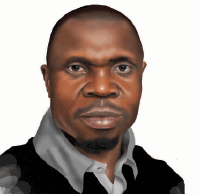On Thursday morning, I sent a young man to buy petrol for my car. He informed me that all the petrol stations were shut down; including those of the Nigerian National Petroleum Corporation (NNPC); as they were still struggling to adjust their meters to reflect the new price regime.
But I needed to fuel the car pretty fast. So, I told him to secure some quantity for me at the more accessible alternative source called the black market. With a princely four thousand naira, he left; only to resurface a few minutes later. I was surprised. His story jolted me.
“Uncle,” he said, “10 litres of petrol in the black market now costs N5,500.” I was stunned. I demanded a repeat of what he said because I was sure of an error somewhere. He obliged. One of his friends who went with him confirmed it.
I pulled a chair to sit down because I wasn’t sure my legs were able to absorb the shock that followed that disclosure. Instantly, I cancelled all my engagements for the day. The car tank was empty but I was not ready to pay N550 for a litre of petrol that cost N86 the previous day.
This happened less than 24 hours after the federal government scrapped the subsidy on petroleum products. It was a long-awaited decision. As Wilfred Petersen has noted, “decision is the spark that ignites action ….”
But when the best of decisions are taken at the wrong time, they become punishment and a demonstration of utter insensitivity. Agreed, leadership demands that you take a decision.
However, when an elected government takes a decision by merely riding on its subjective sense of righteousness, then there is something wrong.
My position may run contrary to what Charles Blow had previously said; that “there is no wrong time to do the right thing.” But the author, Joshua Harris, believes that “the right thing at the wrong time is the wrong thing.”
That is what has happened to the decision by the Muhammadu Buhari and his team of “noise makers” to finally scrap the subsidy on petroleum products at a time ordinary Nigerians no longer see what to pick from the dustbin to eat. This is a good decision taken at the wrong time.
Even the Holy Bible says there is time for everything under the sun. This means that you can do even the most undesirable things and still gain some applause if you choose your time properly.
I have always believed that petroleum subsidy was another way of corruptly enriching a few privileged individuals at the expense of the suffering masses. Nigeria needed someone courageous enough to do away with it and damn the consequences.
When Goodluck Jonathan announced subsidy removal in 2012, I was one of those who believed in that decision. My only unheard and unheeded advice was that proceeds from that monumental decision be used to immediately revive our dead refineries, build roads and railways across the country.
But Jonathan did not have the support of those he thought he was fighting for because some money-miss-road politicians, parading as patriots, quickly pulled out illicit funds from wherever they were hidden and funded nationwide protests against the policy.
That protest was code-named “Occupy Nigeria”. Every street in major cities, particularly Abuja and Lagos; and every expressway across the nation, were blocked with human occupation; thus paralysing all economic and social activities.
Musicians were hired across the nation and platforms mounted everywhere including public roads and filling stations to protest government action. I simply did not understand what was happening.
Most of the people who were behind that action are today in full support of the removal of petroleum subsidy by the Buhari-led administration. Most of them are in this government and are either right on stage or behind the curtain.
Up till this moment, it is difficult to understand why the lions of Southwest politics and the big Lagos landlords spent such big money paying people to protest on the streets against an action that was meant to pull the nation out of certain economic slavery.
Truth is that Jonathan’s timing was far better than that of Buhari in many respects. Today in Nigeria, poverty has become the second name of ordinary Nigerians. We spend the day with it and go to bed thinking of what happens next.
School has reopened and parents are groaning under the unbearable weight of school fees. We have been buying petrol from the black market since November last year at an amount per litre never heard of in this country.
Today in Nigeria, for those who can afford it, you buy petrol everyday for your car and for the power generator. Never in the history of this country has the demand for power generating sets be this high. Public power supply is becoming history.
People are putting up their refrigerators for sale because they can’t power them again. Everything electrical has lost its taste and value. This administration has continuously claimed to be fighting corruption; which means that ordinary Nigerians can die while that war lasts.
Fighting corruption is an acceptable fight; but we must be alive to enjoy its benefits. I wish the President had first implemented the budget by releasing funds into the system as appropriated.
That would have mitigated the hardship currently faced by Nigerians before afflicting them with another one.
Removing the subsidy is a welcomed decision; but as Peter Turla once said, it is better to do the right thing slowly than to hurry over it and make it look like the wrong thing.











